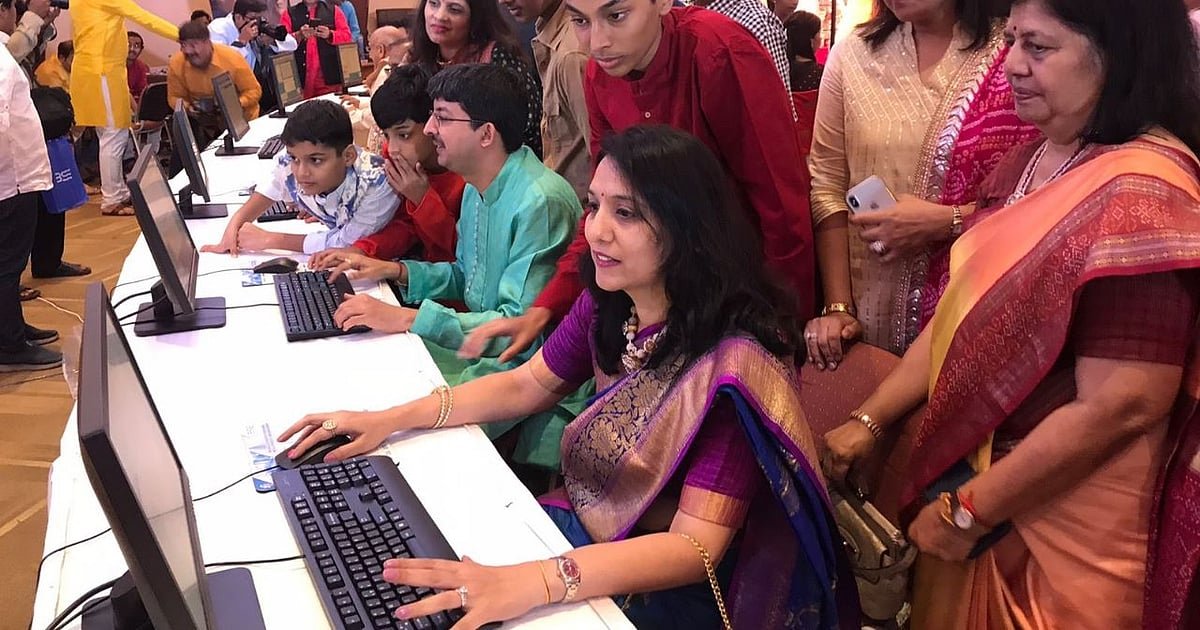The Muhurat trading session was introduced by Asia’s oldest stock exchange, the Bombay Stock Exchange, in 1957. The word ‘Muhurat’ translates to ‘auspicious time’, and the practice stems from the traditional belief that beginning financial activities during an auspicious period ensures prosperity.
As per the Hindu calendar, Diwali marks the beginning of a new year, known as Samvatsaradi. It is also the time when traders and business families ceremonially close their books of accounts for the previous year and open new ones, a ritual known as Chopda Pujan.
Invoking the blessings of Goddess Lakshmi, the deity of wealth and prosperity, during this ceremony involves worshipping and marking the pages of the account books. In addition to the business community, the working middle class of India has also historically worshipped the Goddess in order to have a prosperous year, often coinciding their major purchases with the festival. In some cultures, the academic books of students are worshipped on Diwali to pave the way for a brighter future.
This sentiment likely manifested itself as the Muhurat Trading session by the Indian stock exchanges, gaining significance, partly because it happens on a market holiday, that is, Diwali.



